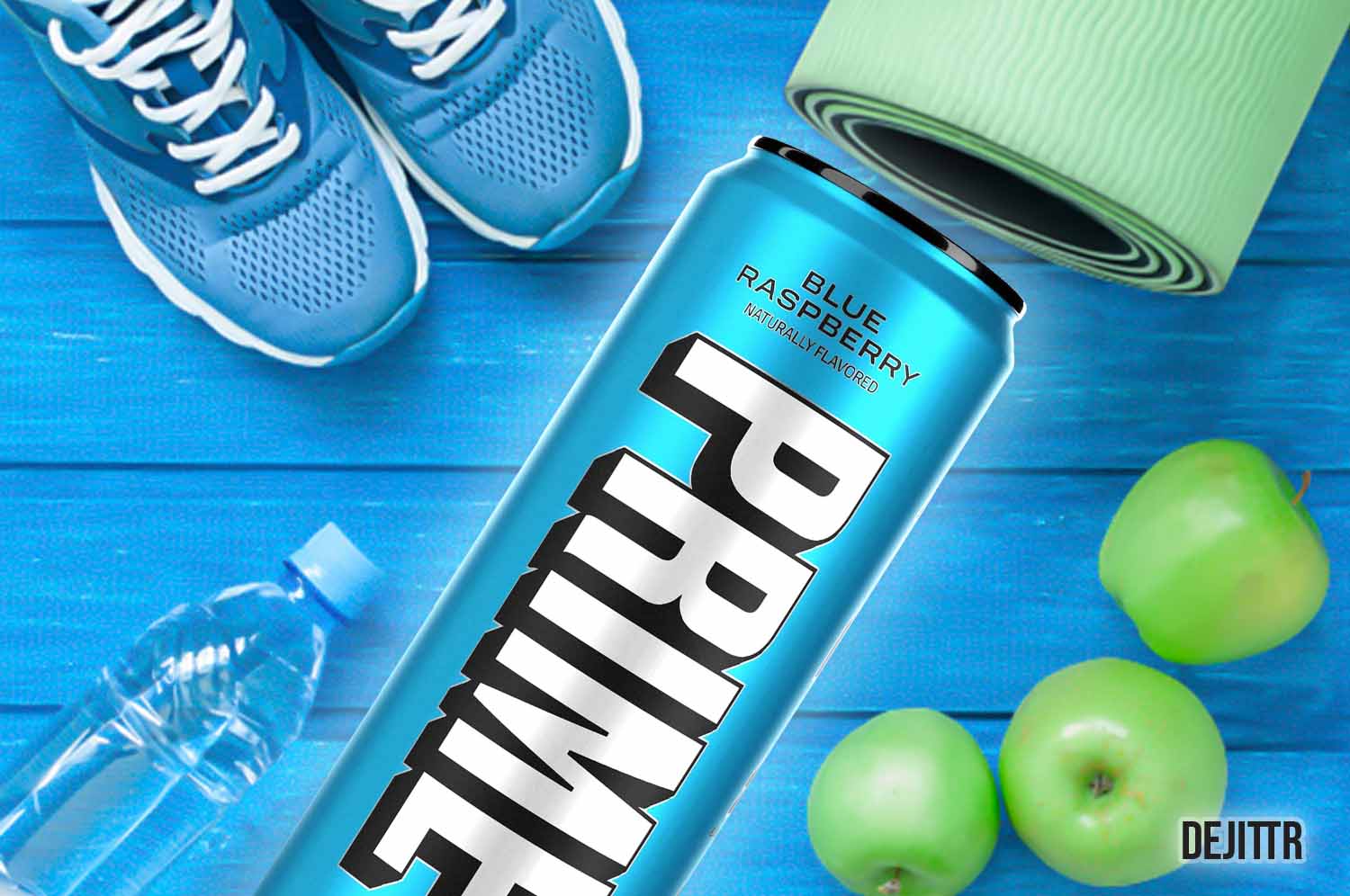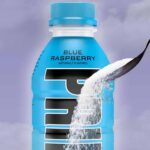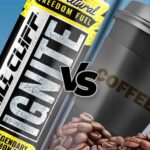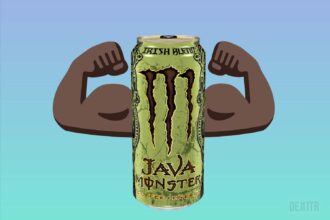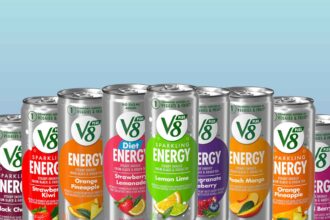Logan Paul and KSI stirred up a storm when they announced the launch of their energy drink, Prime Energy.
But it’s not just KSI and Logan Paul’s fans that are curious about this new beverage – nutrition experts and casual caffeine lovers alike have been asking if Prime Energy Drink is healthy for you to consume.
Key Takeaways:
Prime Energy is generally considered a healthy alternative to most sugary energy drinks, sodas, and coffee beverages. It is naturally flavored and has no added sugar, making it a great choice for those looking to cut calories or avoid artificial sweeteners. Prime also has around 300 mg of electrolytes, which makes it a great way to replenish your body after a long workout.
In this article, we’ll take an in-depth look into the benefits and drawbacks of Prime Energy Drink. We’ll start by discussing the ingredients, then look at how it differs from Prime Hydration. We’ll also see how it compares against other popular energy drinks on the market such as Red Bull. Let’s begin!
Prime Energy Drink Ingredients
To better understand how healthy Prime Energy drink is, let’s do a deep-dive analysis into its various ingredients. This will allow us to gain insight into what is included in the formula that makes up this energizing beverage.
Ingredients:
Carbonated Filtered Water, Coconut Water from Concentrate, Citric Acid, Natural Flavor, Calcium Lactate, Magnesium Citrate, Potassium Citrate, Sodium Citrate, Caffeine, Sucralose, Potassium Sorbate (Preservative), Sodium Benzoate (Preservative), L-Theanine, Inositol, Glucuronolactone, Taurine, Acesulfame Potassium, Pyridoxine Hydrochloride (Vitamin B-6), Cyanocobalamin (Vitamin B-12).
A quick glance at the ingredients list shows that Prime Energy Drink has quite a few beneficial components. Many important vitamins and minerals are included in the formula, such as vitamins B-6 and B-12 which are essential for cognitive function and regulating energy levels.
Here’s a detailed breakdown of each ingredient and its benefits in the Prime Energy Drink formula:
| Prime Energy Ingredients | Effect |
| Carbonated Filtered Water | The first ingredient in Prime is carbonated, filtered water. This helps to keep your body hydrated and improves nutrient absorption. |
| Coconut Water from Concentrate | Coconut water is known for its hydrating properties and is rich in electrolytes. It also contains antioxidants that help fight free radicals. |
| Citric Acid | Citrus acid is used as a flavoring agent, preservative, and pH adjuster. It adds a sour or tangy taste and helps extend the shelf life of the beverage. |
| Natural Flavor | Natural flavors are generally safe and can help improve the taste of the drink, without adding any unnecessary calories. |
| Calcium Lactate | Calcium is an important mineral that helps strengthen and protect bones, build healthy muscles, and regulate nerve function. |
| Magnesium Citrate | Magnesium is an essential mineral that is important for maintaining normal muscle and nerve function, keeping a healthy immune system, and helping the body produce energy. It also improves athletic performance, mental function, and energy levels. |
| Potassium Citrate | Potassium is an essential mineral that is important for maintaining normal heart function, muscle function, and fluid balance in the body. It also helps to prevent kidney stones and lower blood pressure. |
| Sodium Citrate | Sodium is important for maintaining normal fluid balance, muscle and nerve function, and blood pressure regulation in the body. It can also be used as a flavoring agent, to adjust the acidity or pH levels of a product, and as a preservative. |
| Caffeine | Caffeine is the main ingredient in Prime Energy Drink, providing a boost of energy to your body. With 200 mg of caffeine per can, this is enough to give you a jolt of energy without the crash. However, long-term overconsumption of caffeine can lead to side effects, so drinking it in moderation is recommended. |
| Sucralose | Sucralose is an artificial sweetener used in Prime that helps improve the taste without adding calories. |
| Potassium Sorbate & Sodium Benzoate | These are food preservatives commonly used in drinks to prevent spoilage caused by bacteria, yeasts, and molds. Potassium sorbate and sodium benzoate work by reducing the amount of oxygen available to microorganisms, which in turn slows down their growth. They are considered safe to use in food and drinks. |
| L-Theanine | L-Theanine is an amino acid that can be found in tea leaves and is used as a dietary supplement. It is known to promote relaxation without causing drowsiness and can help to reduce stress and anxiety. |
| Inositol | Inositol is a carbohydrate that can be found in fruits, nuts, and whole grains. Inositol is believed to have a positive effect on mood, anxiety and can help with symptoms of depression. |
| Glucuronolactone | Glucuronolactone is a natural substance that is found in the human body. It is believed to have a positive effect on energy levels, mental focus, and physical performance. |
| Taurine | Taurine is an amino acid, known to have a positive effect on heart function, and muscle function and can help with hydration. It is also thought to have a positive effect on cognitive function, focus, and mental clarity. |
| Acesulfame Potassium | Commonly known as Ace-K, Acesulfame Potassium is an artificial sweetener used to improve the taste of foods and beverages without adding calories. Although various studies have found it to be safe for consumption, some research has linked it to adverse health effects. |
| Vitamin B-6 | Also called pyridoxine, Vitamin B-6 is important for the proper function of the nervous and immune systems and is also involved in the synthesis of neurotransmitters and red blood cells. It helps the body to convert food into energy and helps in the formation of hemoglobin. |
| Vitamin B-12 | Also called cobalamin, Vitamin B-12 is important for maintaining healthy nerve cells, red blood cells, and DNA. It is also involved in the production of the neurotransmitters, which are chemicals that help to transmit signals in the brain. |
Overall, Prime Energy Drink packs in a multitude of beneficial ingredients for energy and hydration. It’s packed with electrolytes, vitamins, and minerals that can help keep your body energized and functioning properly.
However, keep in mind that it does have 200 mg of caffeine per can, which might be too much if you’re consuming it on a regular basis. It’s also not advisable for children and pregnant or breastfeeding women, due to the caffeine content.
If you’re someone who’s trying out an energy drink for the first time, we recommend going through this helpful guide beforehand.
What’s The Difference Between Prime Energy and Prime Hydration?
Prime Energy and Prime Hydration are both produced by the same company, but they have some key differences.
The biggest difference between the two is their caffeine content. Prime Energy has 200 mg of caffeine per can, while Prime Hydration has 0 mg of caffeine per can. This means that if you’re looking for an energy boost but don’t want caffeine, then Prime Hydration is the way to go.
Note: Since Prime Energy has such a high caffeine content, it is not sold to anyone under the age of 18. Prime Hydration, on the other hand, is available to all ages. For more info on Prime Hydration, make sure to check this out.
In terms of calories, Prime Hydration has 20 calories per bottle, while Prime Energy has just 10 calories per can. The electrolyte content also varies quite a bit as Prime Energy has only 300 mg of electrolytes per can, while Prime Hydration has a whopping 825 mg of electrolytes per can.
As you can see, Prime Hydration is for those looking for a healthy, hydrating boost, while Prime Energy is for those looking for an energy boost without having to consume a lot of sugar or calories. Depending on what your needs are, either could be an ideal choice.
Best Time to Drink Prime Energy vs. Prime Hydration (Best Use Case)
For Prime Energy, the best time to drink it is in the morning or pre-workout. Its high caffeine content will give you a short burst of energy, which will last several hours. It’s also great to drink during times when you need a short boost of energy, such as mid-afternoon.
Important: Do remember that according to the FDA, 400 mg of caffeine per day is the maximum amount of caffeine that a healthy adult should consume. So, if you’re consuming Prime Energy on a regular basis, make sure to keep track of your total caffeine intake.
Prime Hydration, on the other hand, can be consumed throughout the day. Its electrolyte content will help to keep you hydrated and its flavor is light enough that it won’t be overpowering. It’s also low in calories, so you can drink it without worrying about consuming too many calories.
While it shouldn’t replace water as your primary source of hydration, Prime Hydration can be a great way to get added electrolytes throughout the day. Do make sure you check out this article for an inside look at the benefits of Prime Hydration.
Overall, Prime Energy and Prime Hydration can be great tools to keep you energized and hydrated throughout your day. When you need an energy boost, reach for Prime Energy, and when you need to stay hydrated, reach for Prime Hydration.
In a recent article, we dive deep into the best use case for Prime energy ve Prime hydration here.
Prime Energy vs. Red Bull
Red Bull is one of the oldest and most well-known energy drinks on the market. Ruling the sports and energy drink market with a nearly 43% share, Red Bull’s formula is based on high levels of caffeine and taurine.
If you’re looking for a more in-depth analysis of these two energy drinks, check out this article I wrote: Prime Energy vs. Red Bull: Nutrition, Popularity, & More
Now let’s look at how the young upstart, Prime Energy, stacks up against its more established competitor.
❖ Caffeine Content
Red Bull clocks in at 116 mg of caffeine per 12 oz can, while Prime Energy has 200 mg of caffeine per 12 oz can. This means that Prime Energy packs over 70% more caffeine than Red Bull. For those looking for a serious energy boost, Prime Energy is the way to go.
Unfortunately, this also means that while you can have a couple of cans of Red Bull throughout the day, you should only have a can or two of Prime Energy if you want to stay within the recommended daily caffeine limit of 400 mg.
Recommended Read:
Energy drinks can make you crash because they have hormone-level-boosting components like caffeine and sugar, which peak and fall off – resulting in a crash. I highly recommend reading my “Can Energy Drinks Make You Crash?“(6-minute read) article when you’re done reading this one.
❖ Sugar Content
In terms of sugar content, Red Bull has almost 37g of sugar per can, whereas Prime contains zero sugar. This excess of sugar can lead to weight gain and obesity. So for those looking to cut down on their sugar intake, Prime Energy is the better alternative.
❖ Flavors
Currently, there are 11 flavors available for Red Bull – Classic, Sugarfree, Zero, Red Edition (Watermelon), Yellow Edition (Tropical), Blue Edition (Blueberry), Green Edition (Dragon Fruit), Peach Edition, Coconut Edition, Amber Edition (Strawberry and Apricot), and Winter Edition (Fig Apple).
On the other hand, Prime Energy comes in five flavors – Strawberry Watermelon, Blue Raspberry, Tropical Punch, Orange Mango, and Lemon Lime.
Note: To get the best taste out of your favorite sports drinks, it’s important you know how to properly chill them. Check out our helpful guide to learn more.
❖ Calories
This is perhaps the tipping point for many energy drink consumers. While Red Bull has 168 calories per can, Prime Energy only has 10 calories per can.
Both drinks are great options, depending on what you’re looking for. If you prefer the classic taste of Red Bull, then you won’t be disappointed. But if you’re looking for a healthier and sugar-free alternative, then Prime Energy is your best bet.
Frequently Asked Questions (FAQs)
Here are some of the most commonly asked questions about Prime Energy Drink.
A. Yes, Prime Energy is vegan-friendly. It does not contain any animal products or by-products.
A. Yes, Prime Energy is gluten-free and free of wheat, rye, barley, and other ingredients containing these grains.
A. No, Prime Energy is an energy drink and does not contain any alcohol. It is also certified Kosher, and the company has stated that they’re Halal friendly too.
Final Thoughts
We hope this article has helped you understand what Prime Energy Drink is, and whether it can be a healthy choice for you. While the high caffeine content might not be ideal for everyone, the low sugar and calorie content make it a great option for people looking to stay energized without having to consume too many calories. So, enjoy your Prime Energy in moderation and stay hydrated!


